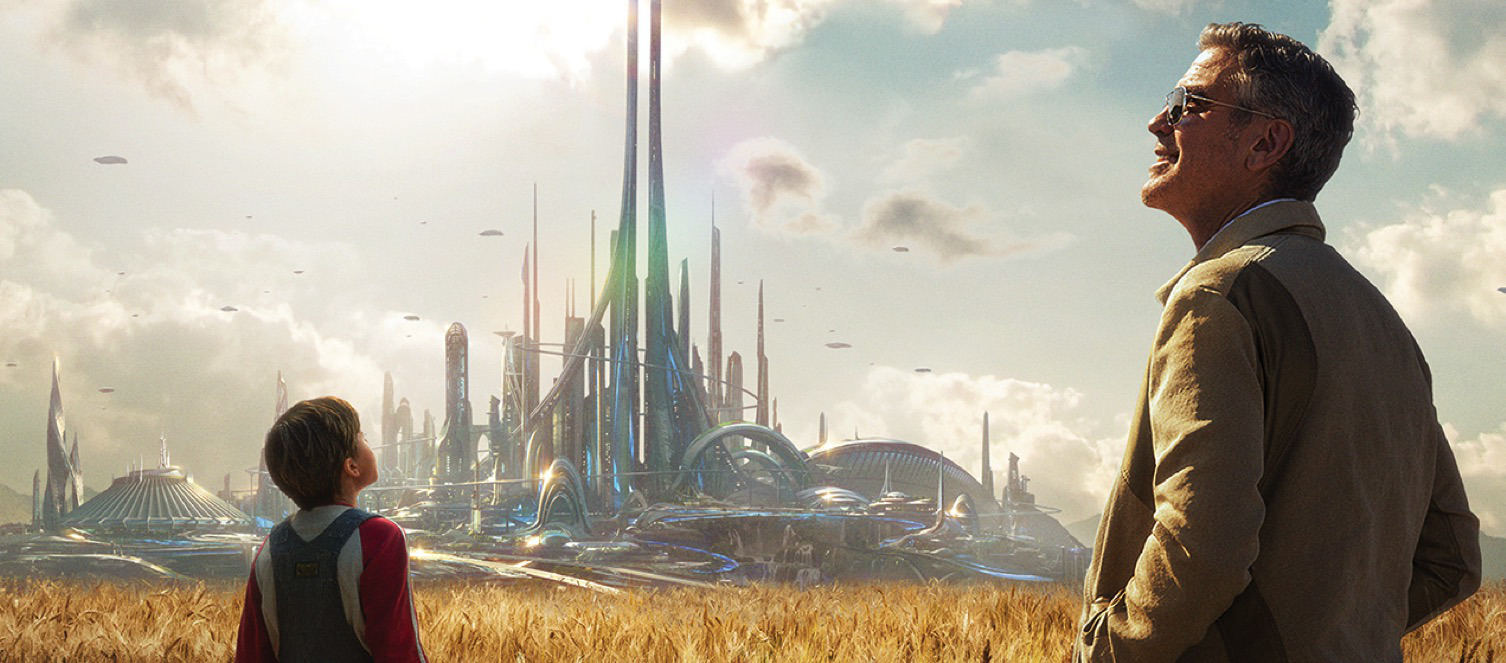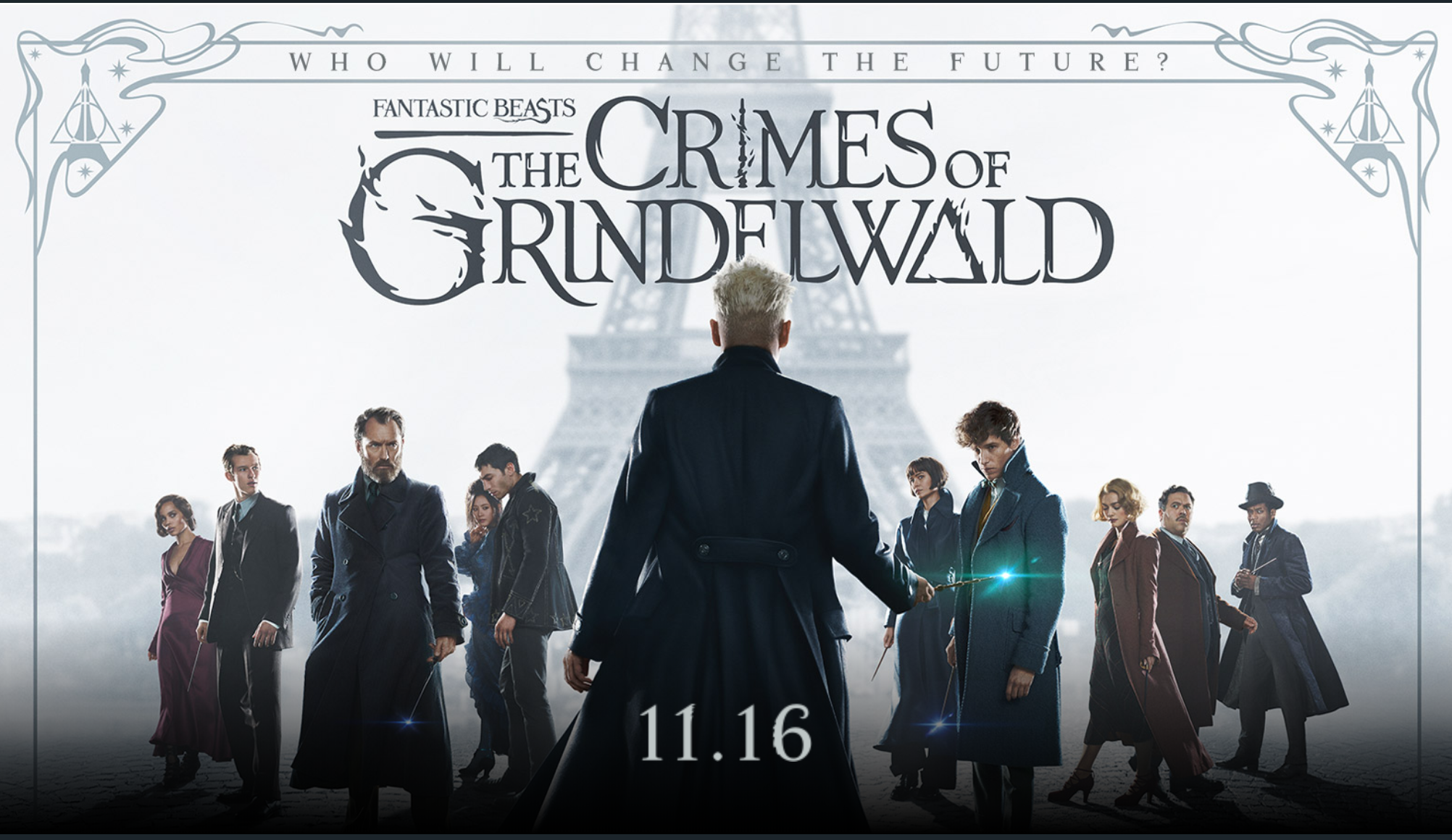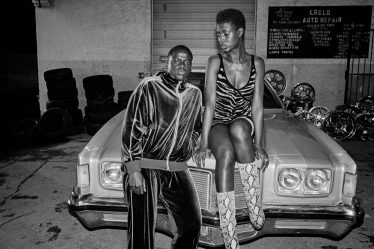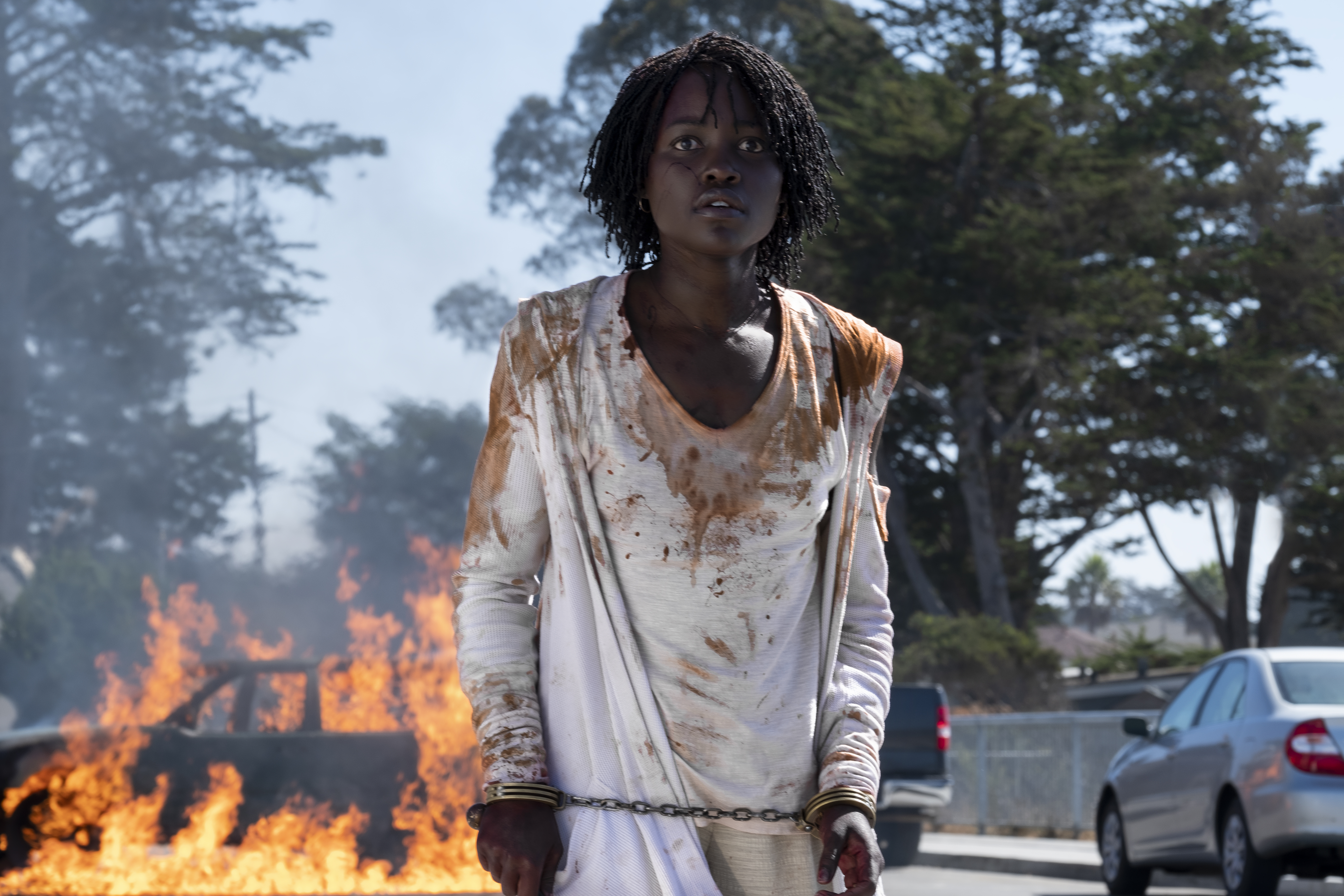
How much does the power of hope influence the course of our lives? Is pessimism a destructive force? Is optimism & positivity essential to our future? Brad Bird says so, and shows it in Tomorrowland, starring George Clooney, Hugh Laurie, Britt Robertson, and sure-to-be-a-star Raffey Cassidy. Even lesser movies directed by Bird are pretty great and worth seeing, but what’s missing from Tomorrowland? Find out in this video review.
Written transcript:
It’s blockbuster season. This is the time of year where movie lovers are exposed to a barrage of sequels, reboots, and franchise films. This means, regardless of the box office numbers they reap, these movies run the spectrum from surprisingly inventive, as in Mad Max: Fury Road, to inconsistent and unoriginal, as in Pitch Perfect 2.
Two time Oscar winning director Brad Bird knows how to successfully guide both inspired originals like The Incredibles and sequels in need of a new twist, like Mission: Impossible-Ghost Protocol. Bird helms Tomorrowland, making a movie that, despite its many shortcomings, has an entertainment value and pervasive optimism about the future that makes it a fun, essentially worthwhile cinematic experience.
At very least, it has the distinction of being a stand alone story, even as it was partly inspired by a Disney theme park. Tomorrowland succeeds most as a throwback to the live action Disney films like 1975’s Escape from Witch Mountain, in that it stays firmly planted in the idealistic mindset the Disney company has always attempted to represent to the public.
Tomorrowland also thrills repeatedly with its diverse visual landscapes, and several engaging plot devices. It has less success with cohesion, consistent plot threads, or satisfying character arcs, getting bogged down with a message delivered so heavy handedly and with such laser focus even the shiniest of optimists will feel manipulated.
Intrepid boy genius Frank Walker enters the 1964 Worlds Fair, his barely working invention in tow, buoyed by a tenacious hope for the future. He is both shot down by a scientist because his work isn’t perfect, and noticed by lovely pre-teen Athena (Raffey Cassidy) who shows him the way to a spectacular alternate world of the future. Cut to today, where we meet teen Casey Newton (Britt Robertson, apparently getting the role after going through as many as 50 auditions), who has the same dreamy optimism and determination. She finds herself experiencing moments that show her the same future world, and seeks out the now older, far more cynical, Frank Walker (George Clooney) to get answers. Both things dark and scary and more positive and exciting are delivered via a script with characters that experience a wide spectrum of emotion, and action that includes some death and a lot of explosions, all in the ultimate service of a strong message impossible for any audience member to miss.
The single most exciting aspect of Tomorrowland is the many places in time and space the audiences experience visually. First, there’s the inventive elements of Tomorrowland itself, which was filmed partly on location at the City of Arts and Sciences in Valencia, Spain and designed by Santiago Calatrava. Then there’s the retro cool of the 1964 World’s Fair, the drab visual pessimism of present day, and several key scenes that use famous locations like Paris, France and Cape Canaveral in a new way. They all come together beautifully.
There are several things that make this film clunky. There is a sort of race to get somewhere in the plot, and once we get there, the payoff is scant at best. To avoid spoilers, let’s just say that the audience commits emotionally to Frank, Athena, and Casey, but we don’t really get anywhere. The individual characters have resolutions offering varying degrees of satisfaction, and as the film progresses, any introspection by viewers leads to asking questions they realize go unanswered. Also, the explanation of how the central problems in the film can be solved is farfetched and confusing.
On the other hand, the idea that optimism and pessimism are constantly at war inside us and in society, that we must choose to be dreamers or abandon our dreams only to discourage the dreams of others, is a great one for a family film. Some ways in which they tackle this theme are touching and even inspiring. This is no doubt what Brad Bird set out to do: inspire viewers. And the film is fun.
There are worse things than a cinematic message that basically tells you to shut up, stop complaining, and start dreaming—they just didn’t have to put that message on repeat and play it over and over and over again. So if an old style Disney live action fantasy appeals, leave your grumpy side home. Think, YAY to humanity! and approach Tomorrowland with the expectation you’ll get caught up in its action, visual wonder, and positivity.
3 out of 5 stars



